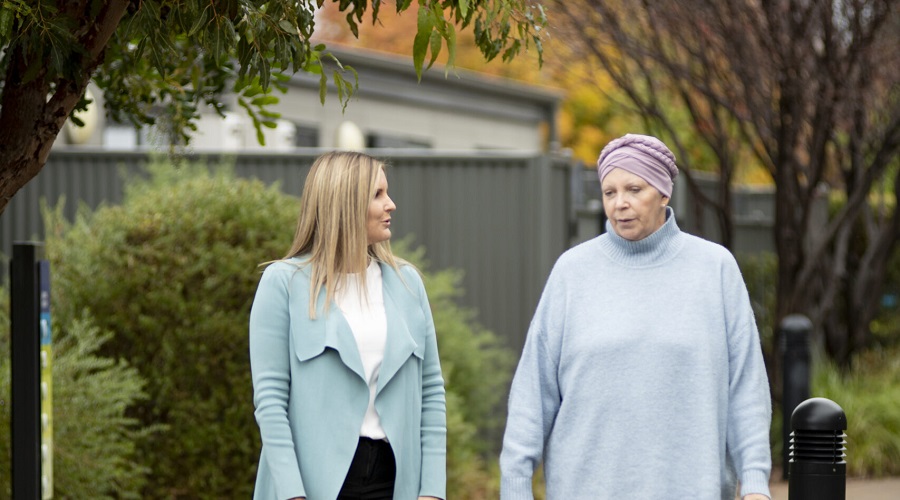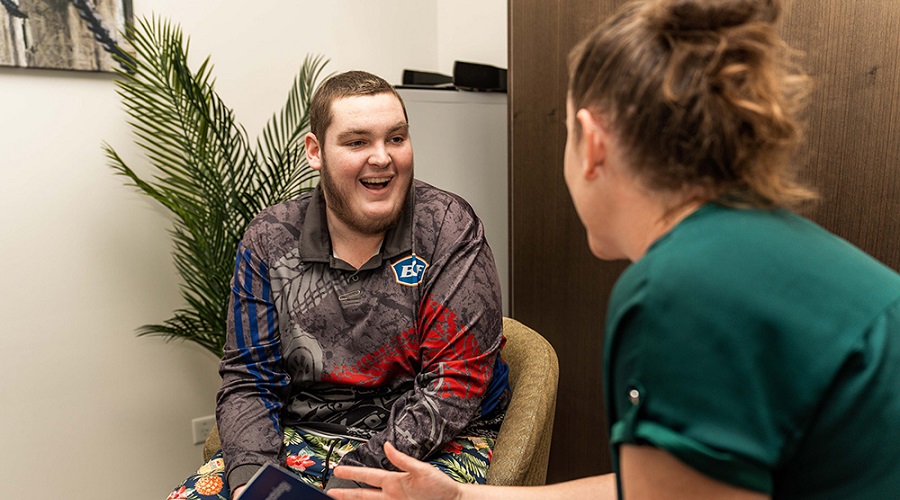Everyone with blood cancer deserves

Even though 1 in 12 Australians will be diagnosed with blood cancer, awareness is still incredibly low. Nationally, 17 people lose their lives to blood cancer every day. Many of these deaths are preventable.
No matter where someone lives or the barriers they face, anyone with blood cancer deserves to be diagnosed quickly and receive best-practice treatment and care.
We know people living in rural, regional, and remote areas, First Nations peoples, culturally and linguistically diverse communities and LGBTQIA+ individuals are among those facing significant barriers to getting diagnosed quickly or receiving the best available treatment and care.
Older Australians, adolescents and young adults, people in lower socioeconomic groups, those living with a mental illness and people with disabilities also face unique challenges.
It’s time to end this lottery and close the cancer health divide – for good.
At 35 years old, Kish Modi didn’t think he’d become ill, let alone be diagnosed with blood cancer
“Whether you are young, you’re old, you’re gay, you’re straight, it doesn’t discriminate.”
Blood cancer doesn’t discriminate, so neither should anything else.
“I think it’s really important as a community that we recognise that people have different challenges. Everyone’s cancer journey is very different, but everyone deserves access to the treatment that they need to be cancer-free. Everyone definitely deserves a fair go.”
Do you need support?
People with blood cancer and their loved ones can connect with one of the Leukaemia Foundation’s specialised Blood Cancer Support Coordinators by calling 1800 620 420, by email or raising a support request on our website.
A message from the Prime Minister
It took six months for Kerry to be diagnosed
Kerry Boyenga is a First Nations woman living in regional New South Wales. She was diagnosed with Australia’s most common type of blood cancer, but it wasn’t on the radar of her local clinic.
“I thought my diagnosis was very slow. By the time I was diagnosed, I was at Stage 2.”
Kerry needed to travel to Canberra – two hours from home – for treatment and subsequent appointments with her haematologist.

Did you know we have a podcast?
Talking Blood Cancer explores stories of people who have faced blood cancer in the hope it offers insight, inspiration and hope.

Stay up to date
Sign up to the Leukaemia Foundation’s blood cancer newsletters for the latest blood cancer news, stories as well as information about treatment, research and clinical trials.
We are extremely grateful to our supportive campaign partners
Last updated on October 1st, 2024
Developed by the Leukaemia Foundation in consultation with people living with a blood cancer, Leukaemia Foundation support staff, haematology nursing staff and/or Australian clinical haematologists. This content is provided for information purposes only and we urge you to always seek advice from a registered health care professional for diagnosis, treatment and answers to your medical questions, including the suitability of a particular therapy, service, product or treatment in your circumstances. The Leukaemia Foundation shall not bear any liability for any person relying on the materials contained on this website.






